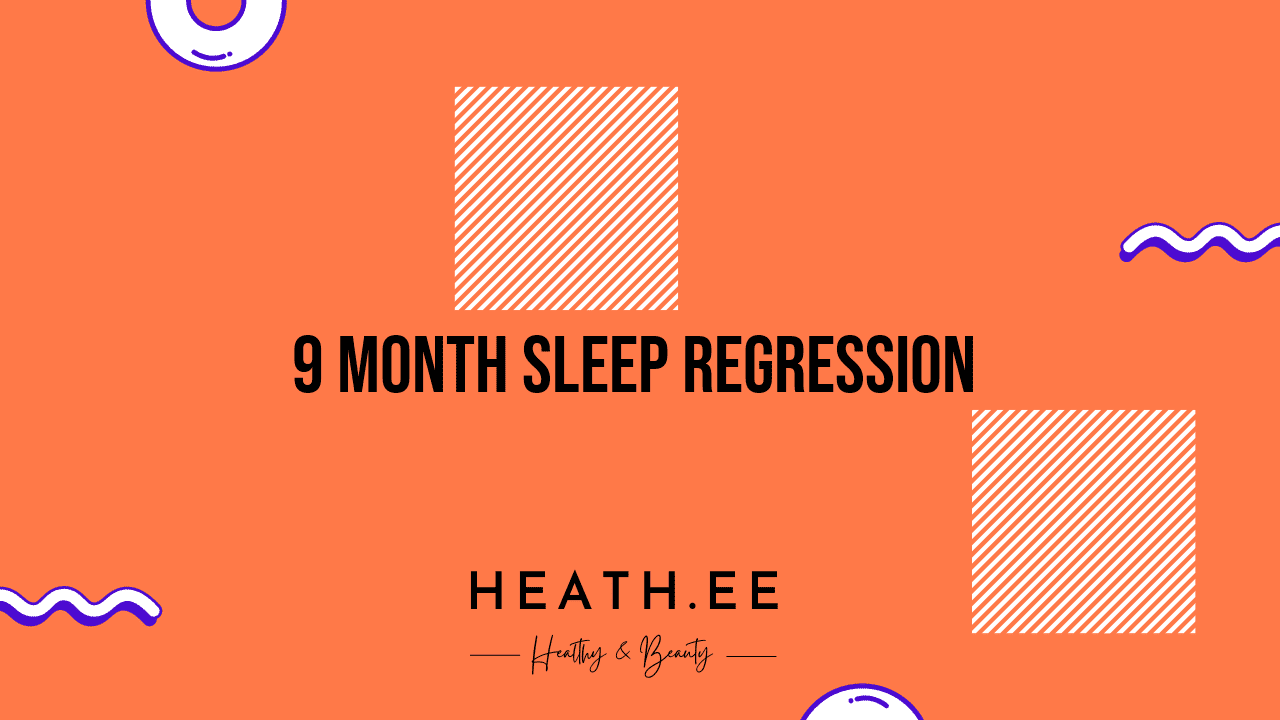Sleep regression is a normal part of a baby’s development, and it is something that can cause a lot of stress for parents. At 9 months, babies are typically transitioning from two naps a day to one, and this can lead to a period of disrupted sleep. In this article, we will discuss the signs of 9 month sleep regression, tips for dealing with it, and how to help your baby get back on track.
What is 9 Month Sleep Regression?
9 month sleep regression is a period of time in which your baby’s sleep pattern is disrupted. It typically occurs when your baby is transitioning from two naps a day to one. During this time, your baby may experience more frequent night wakings, longer wake times, shorter naps, and difficulty falling asleep. It is important to remember that sleep regression is a normal part of development and that it is not permanent.

Signs of 9 Month Sleep Regression
It can be difficult to tell if your baby is experiencing 9 month sleep regression or if it is just a phase. There are some signs that can help you determine if your baby is going through a sleep regression. These include:
-
Longer wake times: Your baby may be awake for longer periods of time during the day and may have difficulty settling down for naps.
-
Shorter naps: Your baby may be taking shorter naps, or may be having difficulty falling asleep for naps.
-
Night wakings: Your baby may be waking more frequently at night, or may be having difficulty staying asleep for longer periods of time.
-
Increased fussiness: Your baby may be more fussy and clingy during the day, which can be a sign of sleep deprivation.
Tips for Dealing with 9 Month Sleep Regression
If your baby is going through a sleep regression, there are some things you can do to help them get back on track. Here are some tips for dealing with 9 month sleep regression:
-
Establish a consistent bedtime routine: Having a consistent bedtime routine can help your baby know when it is time to sleep. This should include dimming the lights, reading a story, and singing a lullaby.
-
Stick to a regular nap schedule: Try to stick to a regular nap schedule, even if your baby is having difficulty falling asleep or staying asleep for naps. This will help your baby’s body get used to the new schedule.
-
Make sure your baby is getting enough sleep: Make sure your baby is getting enough sleep during the day and at night. If your baby is not getting enough sleep, they may be more prone to sleep regression.
-
Avoid screens before bedtime: Try to avoid screens before bedtime, as the blue light from phones and tablets can make it harder for your baby to fall asleep.
-
Create a sleep-friendly environment: Make sure your baby’s bedroom is dark, quiet, and cool. This will help them feel more comfortable and make it easier for them to fall asleep.

How to Help Your Baby Get Back on Track
Once your baby is through the sleep regression, there are some things you can do to help them get back on track. Here are some tips for helping your baby get back on track:
-
Keep a consistent bedtime routine: Having a consistent bedtime routine will help your baby know when it is time to sleep.
-
Avoid screens before bedtime: Try to avoid screens before bedtime, as the blue light from phones and tablets can make it harder for your baby to fall asleep.
-
Create a sleep-friendly environment: Make sure your baby’s bedroom is dark, quiet, and cool. This will help them feel more comfortable and make it easier for them to fall asleep.
-
Make sure your baby is getting enough sleep: Make sure your baby is getting enough sleep during the day and at night. If your baby is not getting enough sleep, they may be more prone to sleep regression.
-
Use a white noise machine: White noise can help your baby fall asleep and stay asleep.
-
Make sure your baby is getting enough exercise: Exercise can help your baby get the sleep they need. Make sure your baby is getting enough exercise during the day.
-
Talk to your pediatrician: If your baby is still having difficulty sleeping, talk to your pediatrician. They may be able to provide additional tips and advice.
Conclusion
Sleep regression is a normal part of a baby’s development, and it can be a stressful time for parents. At 9 months, babies are transitioning from two naps a day to one, and this can lead to a period of disrupted sleep. It is important to remember that sleep regression is a normal part of development and that it is not permanent. If your baby is going through a sleep regression, there are some things you can do to help them get back on track. Establish a consistent bedtime routine, stick to a regular nap schedule, make sure your baby is getting enough sleep, avoid screens before bedtime, create a sleep-friendly environment, and talk to your pediatrician for additional tips and advice. With these tips, your baby should be back on track in no time.



